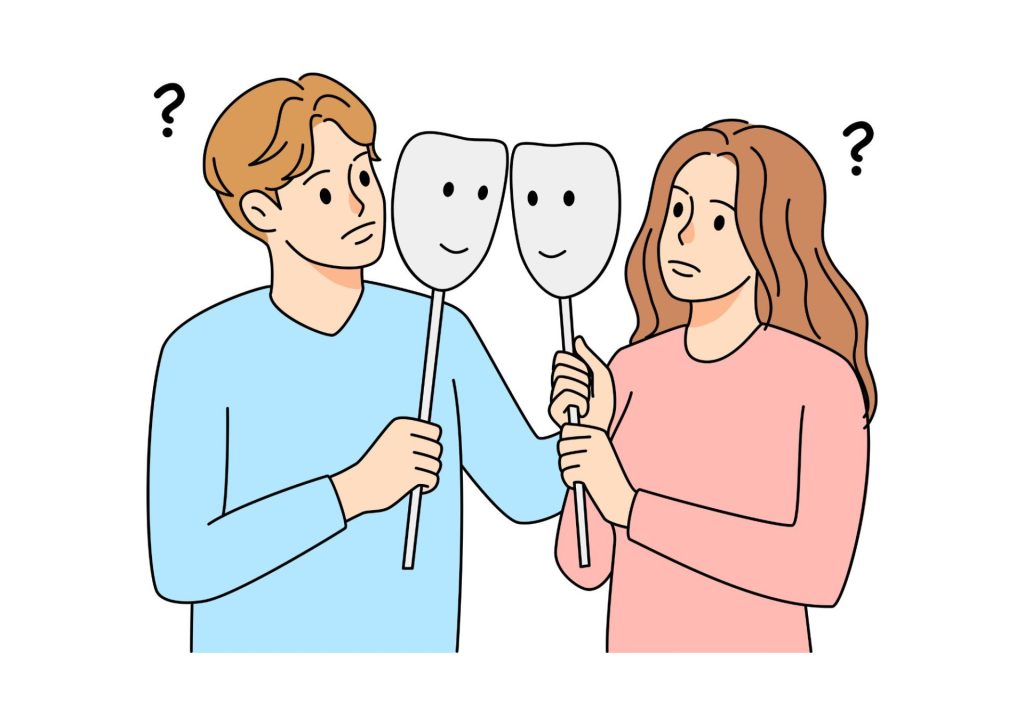Signs You Are Dating a Psychopath
Signs You Are Dating a Psychopath

Written By: Kelly Chan Jia Li, Clinical Psychologist (MAHPC(CP)00353)
Dating can be joyful and exciting, but sometimes you might unknowingly date a psychopath. Psychopathic behaviour can vary significantly from one individual to another. Hence, dating someone with psychopathic traits can be challenging and potentially dangerous. It is important to recognise the signs of psychopathic behaviour. This article will explore the signs that might indicate you are dating a psychopath.
What is a Psychopath?
Before diving into the signs, it is important to understand what a psychopath is. Psychopathy is a mental health condition characterized by persistent antisocial behaviour, impaired empathy and remorse, and bold, disinhibited, and egotistical traits. Psychopaths are often charming and manipulative, making it difficult to recognize them at first.
Signs You Are Dating a Psychopath

Charm and Charisma
Imagine meeting someone who seems perfect. They say everything right, make you feel special, and sweep you off your feet with their charm. This person might shower you with compliments and attention, making you feel like the most important person in the world. Psychopaths are incredibly charming and charismatic because they know how to manipulate others. They use their charisma to gain your trust and affection quickly.
Lack of Empathy
Psychopaths show a lack of empathy towards others. They have difficulty understanding or caring about other people's emotions. They may seem indifferent or uncaring about things that matter to you. For instance, if you tell them about a problem at work, they might brush it off or show little to no concern. They might respond dismissively such as, "People have to deal with their own problems."
Pathological Lying

Psychopaths lie to manipulate and control others. They often lie about their past, achievements, or even trivial details to create a false image of themselves. For example, they might tell you they went to a reputable university when they did not or claim they have a high-paying job when they do not. Even when confronted with evidence, they continue to lie or make excuses.
Impulsivity
Psychopaths often struggle with impulse control and do not think about the long-term consequences of their actions. Their need for immediate gratification often leads to irresponsible behaviour. They often engage in impulsive and reckless behaviour driven by their lack of empathy and disregard for societal norms. They might make reckless decisions without considering the consequences, such as quitting their job on a whim, impulsive spending, or engaging in risky behaviours such as excessive drinking.
Superficial Relationships
Psychopaths are unable to form genuine emotional connections with others. Their relationships are often based on what they can gain from the other person. They might not be able to form deep or lasting romantic relationships. Their interactions with others are often superficial and self-serving. This can create a toxic and unhealthy dynamic, as the psychopath's lack of empathy and disregard for others' needs can cause significant emotional harm.
Manipulative Behaviour
Psychopaths are skilled manipulators. They know how to twist situations to their advantage and make you feel responsible for their happiness or well-being. They might use guilt or flattery to get what they want. For example, they could say, "If you really loved me, you would do this for me," or "You are the only one who understands me; you have to help me."

Lack of Remorse or Guilt
Psychopaths do not experience guilt or remorse like others do. They are more concerned with their own needs and desires than the impact of their actions on others. This lack of emotional connection allows them to manipulate others without feeling guilt or empathy for the harm they cause. For instance, they may manipulate their romantic partners into believing they are deeply in love and committed, only to abandon them without warning or explanation. They might not apologize or show any signs of regret. This can lead to significant emotional distress and trauma for the partner.
Inability to Accept Responsibility
Psychopaths refuse to accept responsibility for their actions. They believe they are never at fault and always find ways to deflect blame onto others. They always have an excuse or someone else to blame when things go wrong. For example, people who date psychopaths may find themselves constantly let down and hurt by their partner's inability to fulfil their responsibilities.
Love Bombing and Devaluation

Psychopaths shower you with affection and attention initially but later devalue and discard you. They use love bombing to quickly gain your trust and affection. Once they have control over you, they reveal their true nature and start to devalue you.
For instance, at the beginning of the relationship, they might overwhelm you with love and attention, making you feel incredibly special. However, they start to withdraw, criticize, and belittle you once you are hooked.
In a Nutshell
Dating a psychopath can be a traumatic experience. Some common signs of psychopathy include a lack of empathy or remorse, manipulative behaviour, a tendency to lie or deceive others, a disregard for the feelings of others, and a lack of impulse control. However, it is essential to note that these traits alone do not indicate psychopathy, as psychopathy is a complex personality disorder that requires a formal diagnosis from a mental health professional. If you suspect you are dating a psychopath, reach out to friends, family, or professionals for support. Remember, your safety and well-being should always be the top priority, and reaching out for help is a courageous and vital step towards protecting yourself.
Reminder: If you or your loved ones are struggling with mental health issues, please don't hesitate to reach out to us at Soul Mechanics KD or Soul Mechanics Ipoh. Remember, seeking help is not a sign of weakness but strength!
If you enjoyed reading this, why not broaden the horizon of knowledge by learning about "Is Alcoholism a Way to Cope with Depression?"? You can read the blog here.
For more content related to mental health do follow us on our official Instagram.

